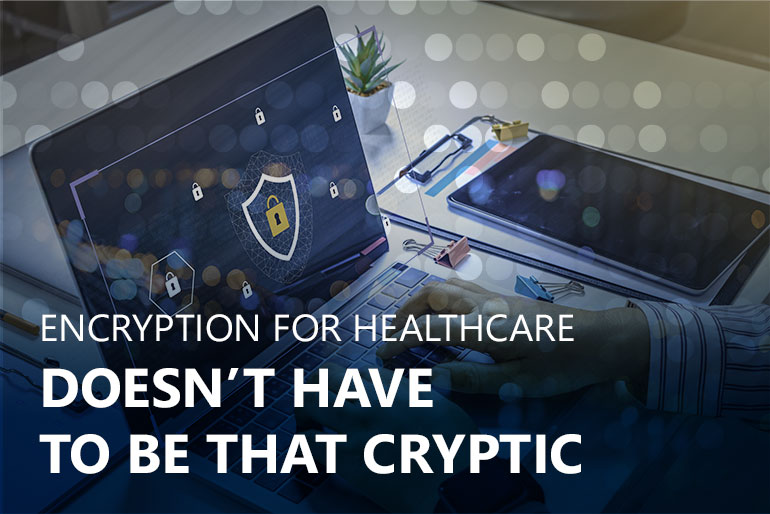Sharing of data is a common aspect of everyday workflow in almost every organization across the country, whether it’s via email, a Cloud storage system or instant messenger software, security measures are crucial to back these systems and prevent data loss.

In 2020, data breaches exposed 36 billion records in Q2 and Q3, with an additional 2,422 million records exposed in Q4. Healthcare was the most breached economic sector in 2020, with hackers capitalizing on the COVID-19 pandemic and the stress it put on the healthcare industry, according to RiskBased. These sobering numbers should be enough to scare any healthcare company into enhancing cyber security measures. Starting with one of the most common sources of data sharing, employee email accounts, may make sense for your team.
Convert from your old billing system to a new, faster system designed to minimize the risk of data loss.
Why Encryption Matters
The process of converting common text into unintelligible content for protection or the reverse of this process is called encryption. Why would encryption be crucial to your organization’s cyber security fortress? Security holes in email systems do happen. Take the early 2021 Microsoft Exchange hack that impacted at least 30,000 organizations, according to KrebsonSecurity. As vulnerabilities are exposed and hackers enter your system, unencrypted, sensitive data is waiting on a silver platter to be taken and used to the hacker’s advantage. Credit card numbers, PHI, private conversations and proprietary company information could all be endangered.
Many see email as a simple path from their inbox to the recipient’s inbox, but there are several points on this journey that open your email to threats. Virtru explains the path an email takes once it’s launched from your inbox and the surprising stops it makes along its trek.
- First stop – Your email server. (hint: check your address bar in your browser for the lock symbol to denote encryption)
- Second stop – Your receiver's email server. Unfortunately, there is virtually no way to determine of the recipient’s server is encrypted.
With the click of a button, this email could’ve been quickly encrypted and secure along every facet of its’ expedition.
Think of it as sending sensitive information through the United States Postal Service, you wouldn’t send it on the back of a postcard for anyone along the way to see it, but rather in a sealed envelope – encryption is that sealed envelope.
The Many Benefits of Encryption with Virtru
- Prevent third-party access to data – the most obvious upside to encrypting your organization’s emails. Keep your pertinent data in the hands of only those who should have access.
- No manual key exchanges – some encryption solutions require users to exchange keys. Virtru hosts keys or allows your organization to host them.
- Additional applications are unnecessary – no need to install new systems, Virtru integrates with your team’s current email system keeping workflows the same.
- Quick and simple usage – users easily click a button embedded in their email system and Virtru does the work!
Encryption shouldn’t be a disabler, but rather an enabler of secure communications, Virtru more than meets that requirement.